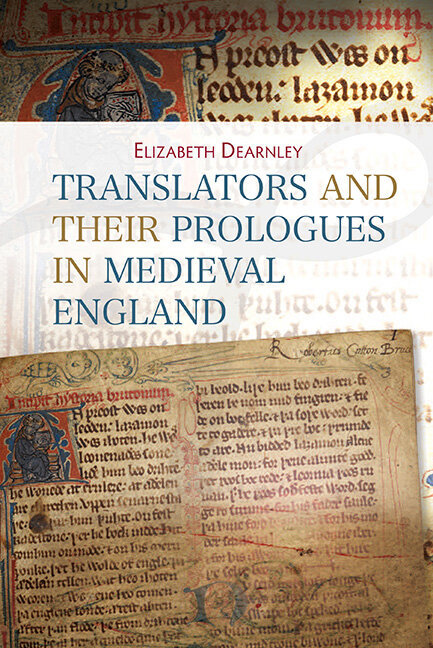
Monograph examining French to English translation in medieval England, through the genre of the prologue.
The prologue to Laȝamon's Brut recounts its author's extensive travels “wide yond thas leode” (far and wide across the land) to gather the French, Latin and English books he used as source material. The first Middle English writer to discuss his methods of translating French into English, Laȝamon voices ideas about the creation of a new English tradition by translation that proved very durable.
This book considers the practice of translation from French into English in medieval England, and how the translators themselves viewed their task. At its core is a corpus of French to English translations containing translator's prologues written between c.1189 and c.1450; this remarkable body of Middle English literary theory provides a useful map by which to chart the movement from a literary culture rooted in Anglo-Norman at the end of the thirteenth century to what, in the fifteenth, is regarded as an established “English” tradition.
Considering earlier Romance and Germanic models of translation, wider historical evidence about translation practice, the acquisition of French, the possible role of women translators, and the manuscript tradition of prologues, in addition to offering a broader, pan-European perspective through an examination of Middle Dutch prologues, the book uses translators' prologues as a lens through which to view a period of critical growth and development for English as a literary language.
Reviews
“A very well-written and rich study of the multilingual space in England after the Norman Conquest to the mid-fifteenth century.”
- Anglia
“[P]rovides a welcome initial foray into the application of translation theory to an understudied Middle English textual corpus by foregrounding the development of a sophisticated translation theory among Midde English translators.”
- Comitatus
“[A] rich, informative, and often sensitive discussion of a wide range of questions regarding translation and multilingualism in medieval Britain”
-The Review of English Studies
“Dearnley deftly maneuvers her tight focus to offer a wide-ranging consideration of medieval
translation. By centering on this small but crucial aspect of medieval translation activity, Dearnley rescues a
subgenre from longstanding scholarly neglect and reveals it to be fertile territory for digging into the question of
medieval translation and the flowering of the English literary tradition.”
-Journal of English and Germanic Philology

 and maybe just a
little bit of
and maybe just a
little bit of  by
by